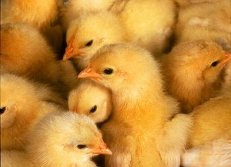Aus research institute celebrates 100 years

Queensland’s Animal Research Institute (ARI) celebrates its centennial. The institute in Yeerongpilly was established in 1909 and since then contributed to the state’s agricultural industry through R&D.
“Originally called the Stock Experiment Station, it was the first facility in Australia involved in research to deal with diseases in stock,” said the Minister for Primary Industries, Fisheries and Rural and Regional Queensland, Tim Mulherin.
ARI personnel have diagnosed and treated livestock diseases, and developed industry practices for farmed animals. During its history, specialists in veterinary pathology, microbiology, biometry, biochemistry, and animal husbandry have worked at the site.
Achievements
The ARI has been responsible for many achievements. “ARI has produced vaccines for botulism since the 1960s, and currently leads the nation in research on the impact of food-borne pathogens such as Salmonella and Campylobacter in intensive pig and poultry systems,” according to Mulherin.
Research programs also focus on genetic testing in cattle, pigs and poultry to improve their growth and health and the quality of meat and eggs.
With today’s important issues like carbon trading and climate change, ARI also focuses research on reducing methane emission from livestock by modifying their digestive processes.
New facilities
ARI will be relocated to new custom built facilities, following a $375 mln partnership with CSIRO to build 2 cutting-edge science precincts in Brisbane. The partnership includes the establishment of the Health and Food Sciences Precinct at Coopers Plains to be opened next year, which will house 700 scientists. Also, thousand Queensland researchers will join together in one location to create the country’s first $300 mln Ecosciences Precinct in Dutton Park, to be opened in 2011.













